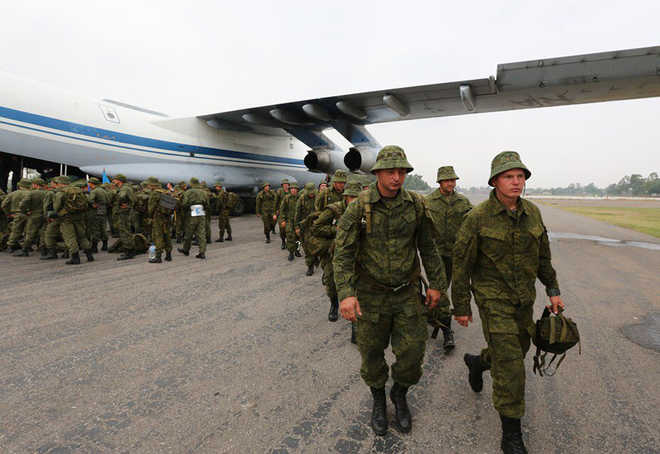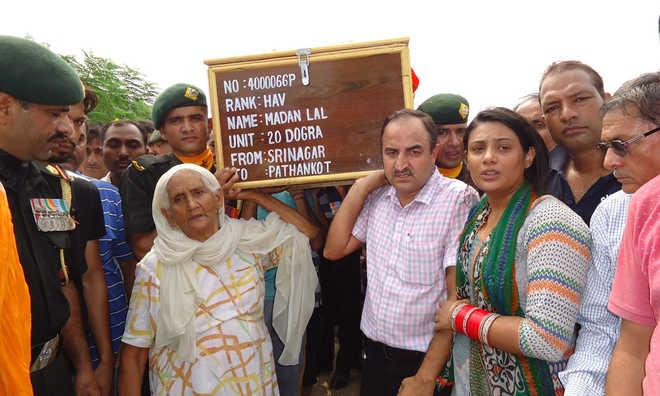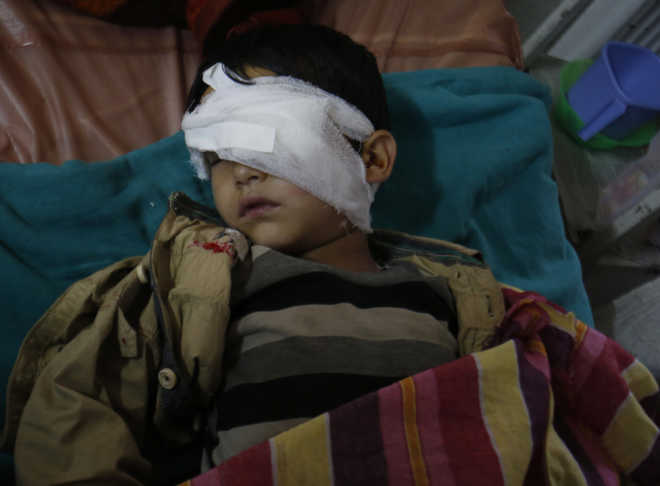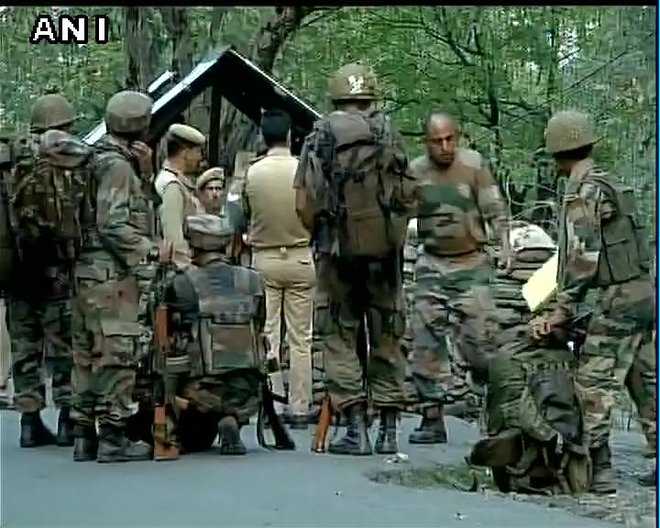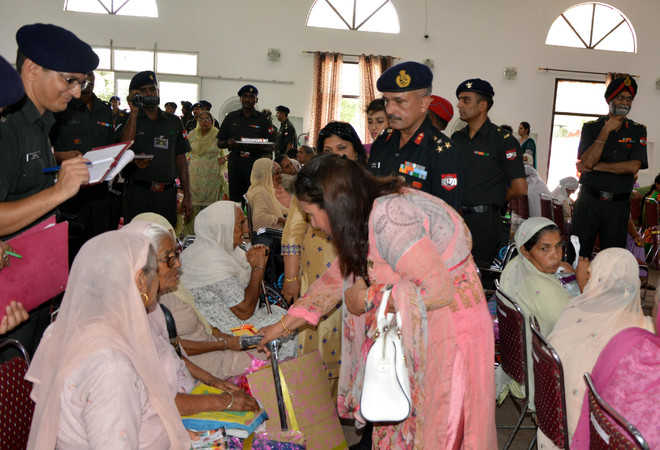In this handout photograph released by Pakistans Inter Services Public Relations (ISPR) on September 23, 2016, Russian troops arrive at a Pakistan military base at an undisclosed location.- AFP
Islamabad, September 23
A mechanised infantry unit of the Russian military on Friday arrived in Pakistan to participate in the first-ever joint military drills dubbed ‘Friendship-2016’ starting from tomorrow, reflecting growing military ties between the two former Cold War rivals.
“A contingent of Russian ground forces arrived in Pakistan for the first-ever Pak-Russian joint exercise from September 24 to October 10,” Army spokesman Lt General Asim Bajwa tweeted along with some photographs of the Russian and Pakistan troops.
A statement by Russia’s Southern Military Command said the drills will involve over 70 servicemen of the Southern Military Command, including the Mountain Mobile Brigade’s personnel deployed to the Karachay-Cherkessia Republic (North Caucasus), and also officers from the headquarters’ staff.
(Follow The Tribune on Facebook; and Twitter @thetribunechd)
“The Southern Military Command’s mechanised infantry servicemen are fully equipped and have their mountain gear with them, as well as ammunition for their standard weapons,” Russia’s Itar-Tass news agency reported, citing the statement.
The two militaries will share their experience and employ teamwork in fighting in mountainous areas, particularly destroying illegal armed groups, it said.
“The joint military drills are aimed at bolstering and building up military cooperation between the two countries,” it said ahead of the opening ceremony tomorrow which is scheduled to take place at Pakistan Army’s High Altitude School in Rattu, Gilgit-Baltistan, Pakistan-occupied Kashmir.
About 200 troops from the two countries will take part in the two-week-long military drills called as ‘Friendship 2016’, which have been termed as a sign of growing military ties between the former rivals of Cold war era.
The joint drill is seen as another step in growing military-to-military cooperation, indicating a steady growth in bilateral relationship between the two countries, whose ties had been marred by Cold War rivalry for decades.
Pakistan decided to broaden its foreign policy options after its relations with the US deteriorated following a secret CIA raid in Abbottabad that killed al-Qaeda chief Osama bin Laden in May 2011.
Its relations with the US were soured recently when US lawmakers blocked funds for the sale of eight Lockheed Martin Corporation’s F-16 fighter jets to Pakistan.
Pakistan decided to look at alternative sources to purchase the aircraft, including from Jordan.
Over the last 15 months, the chiefs of Pakistan’s Army, Navy and Air Force travelled to Russia. The flurry of high-level bilateral exchanges resulted in the signing of a deal for the sale of four MI-35 attack helicopters to Islamabad.
The agreement, signed in Moscow in August 2015, was considered a major policy shift on part of Russia in the wake of growing strategic partnership between the US and India.
Islamabad is eager to improve its ties with Moscow to diversify its options in the event of any stalemate in ties with Washington.
After securing the helicopters deal, Pakistan is also exploring options to buy Su-35 fighter jets from Russia. For this purpose, Chief of Air Staff Air Chief Marshal Sohail Aman visited Moscow in July. — PTI





















































